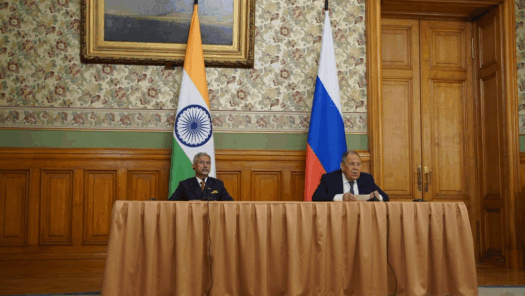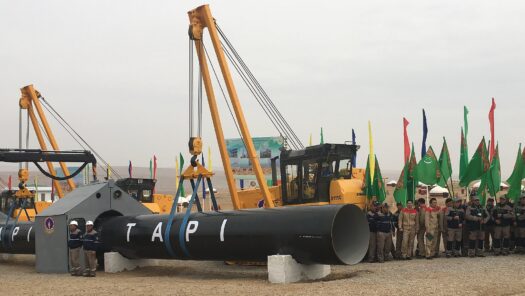Energy
Return to article
پاکستان کا تجارتی موقع : بھارت پر عائد امریکی محصولات (ٹیرف) کے باعث؟
جولائی میں ریاست ہائے متحدہ امریکہ نے پاکستانی برآمدات پر عائد محصولات کو تقریباً 29 فیصد سے کم کرکے 19 فیصد کر دیا اور تاریخ میں پہلی بار پاکستان کو امریکی خام تیل بھیجنے پر اتفاق کیا۔ (اس کے) چند…

Can India and Russia Build a Durable Economic Partnership?
With the backdrop of intense U.S. pressure over India’s Russian oil imports, Indian External Affairs Minister S. Jaishankar visited Moscow from August 19 to 21. The visit signaled New Delhi’s resolve to maintain and even strengthen the relationship with Russia.…

Powering Tensions: Renewable Energy and the Sino-Indian Border Dispute
As geopolitical rivalries evolve, renewable energy projects are emerging as a tool of strategic leverage, particularly along the contested border between India and China — also called the Line of Actual Control (LAC). While the two countries have long used…

India’s Nuclear Bet: Liberalization, Small Reactors, and Big Ambitions
Below, Hely Desai analyzes India’s development of small modular reactors and its implications for New Delhi’s nuclear energy and economic goals. In a recent piece, Brigadier (Retd). Zahir Kazmi responds with some of the concerns that this development generates in…

India Should Take a Proactive Interest in the TAPI Pipeline
On September 11, 2024, the Taliban regime in Afghanistan declared a public holiday in Herat to mark the resumption of work on the Turkmenistan-Afghanistan-Pakistan-India (TAPI) gas pipeline. At the inauguration ceremony, Taliban chief Mohammad Hassan Akhund and President Serdar Berdimuhamedov…

The Path Forward for Pakistan’s Energy Transition
Recently, the Pakistani government severed longstanding contracts with private companies producing power, known as Independent Power Producers (IPPs), in a bid to tackle the issue of expensive electricity in the country. The IPP’s heavy dependence on burning imported fossil fuels…